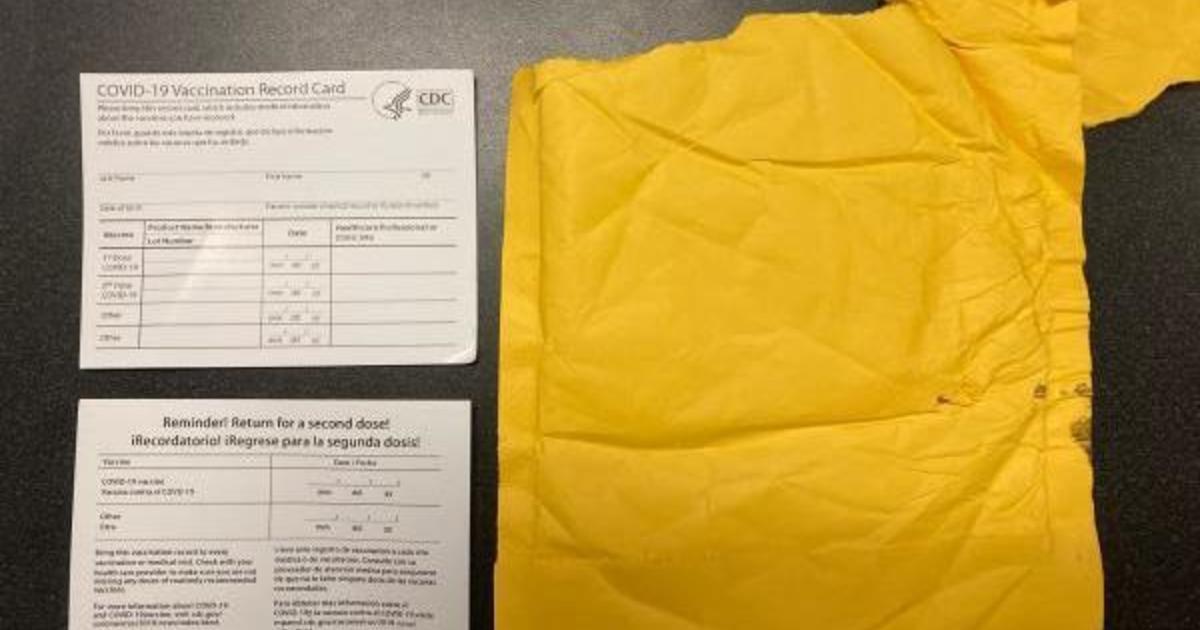
More than 3,000 fake vaccine cards from China seized by customs and border patrol officers at one port
CBSN
U.S. Customs and Border Protection seized fake vaccine cards shipped from China to Tennessee last week. The shipment was disguised as paper greeting cards and upon reading the description in the shipment manifest, customs and border patrol officers "already knew what it was," the agency said in a statement.
The shipment was on route to the central business district of New Orleans but was intercepted at at the port of Memphis. The agency said it was the 15th such shipment that night and inside were "51 low quality, counterfeit COVID-19 vaccination cards." The cards look like real vaccine verification cards with blanks for name, birthdate, vaccine brand and other information, as well as the Centers for Disease Control and prevention logo. However, the cards had typos, unfinished words and some Spanish words that were misspelled, the agency said.More Related News
